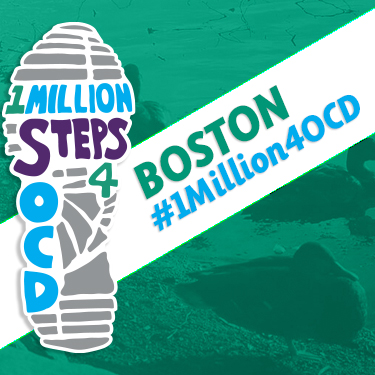Many people are unaware of what Body Dysmorphic Disorder (BDD) is. To non-sufferers, it’s often seen as vanity. To sufferers, it’s a disabling disorder that significantly affects your quality of life. I am a therapist/social worker with Body Dysmorphic Disorder. I will briefly discuss my journey, how I have overcome a disorder that can limit your ability to function on a day-to-day basis, and how I am now focused on my blossoming career and personal life.
I was diagnosed with BDD at 22 years of age. Up until then, I just thought I had anxiety and depression. One day while reading The Broken Mirror by Katharine Phillips at my local bookstore, I realized that I strongly resonated with the BDD sufferers she was writing about. I understood their struggles, and recognized them in my own life. Unfortunately, it would take another 2 years after this self-diagnosis, for me to be officially and properly diagnosed.
Following my professional diagnosis, I started studying BDD. What was this disorder that had so greatly impacted my life? BDD causes a person to have a small or perceived defect about their appearance that outsiders barely notice or do not see at all. This perceived flaw is so unbearable to the sufferer that he/she avoids going places, spends obsessive amounts of time checking his/her perceived defect, gets excessive cosmetic procedures, cuts off social relationships and can become housebound. At its worst, suicide can occur. I was blessed in the sense that I was never suicidal, did not resort to cosmetic procedures, and immediately realized that my perceived flaws were probably worse in my mind than they were in reality. However, I did spend endless amounts of time in front of the bathroom mirror examining my face and obsessing over my skin. I withdrew from social interactions. I felt that I was not worthy of others because, in my mind, my skin was awful and unbearable to look at. I didn’t think I would ever find a companion or be in a relationship because my skin was so repulsive that no one would be able to see past it. I didn’t see myself for the person I truly was.
My life shifted when I began going to a therapist that specialized in BDD. She utilized Cognitive Behavioral Therapy (CBT) and Exposure and Response Prevention (ERP) therapy. She started by providing me with psycho education on what BDD was and how it manifested itself in my life. Using CBT, I began to address my “faulty” thinking and challenge the thoughts I had about myself. Questions like: Is my skin as bad as I think it is? Does having imperfect skin mean you can’t live a healthy, happy life? This process took time because these thoughts were so ingrained in me that I needed to reprogram how I thought about myself. Following this “resetting” of sorts, I began my ERP journey. It was life changing in my recovery. Exposures put me face to face with my ultimate fears. Because my skin was my primary obsession, I was forced to use makeup to accentuate these perceived flaws, and then go out in public and interact with people. The purpose of this exercise was to do exactly the opposite of what my BDD was telling me to do. Often times, my BDD would make me feel that I shouldn’t go out because I was too gross and unappealing. Exposures push you to work through that thinking. Going out and facing your fear will initially bring on intense anxiety, but as you realize people aren’t looking and judging you, you habituate to this anxiety and the fear diminishes. It was important for me to go through a hierarchy of my exposures. I would attack each one knowing that no matter how much anxiety it would bring on, I would ultimately become stronger, healthier and able to live the life I wanted without BDD being in control.
It has been 14 years and I’m proud to say that I am in recovery. One of my most influential therapists, the late Dr. Bruce Hyman, always stressed the importance of understanding that while BDD will always be with me, it doesn’t have to control my life. I like to look at BDD as a passenger in my car. It is there, but it’s in the backseat. I am the one driving. And even though I don’t always feel entirely in control, I no longer allow my BDD to control me.
I continue to use CBT and ERP therapy in my life on a regular basis. I’ve decided to give back to the community that gave me my life back, by becoming the best BDD/OCD therapist I can be. Each day, I get to interact with people who feel as if they can’t get through this pain, and empower them with tools and strategies that will change their lives in ways they didn’t think possible.
Robyn is a Clinical Social Work/Therapist currently practicing in New York. She has expertise working with those who struggle with anxiety, obsessive compulsive disorder, OCD spectrum disorders and depression. To learn more about her and her work, head here.

